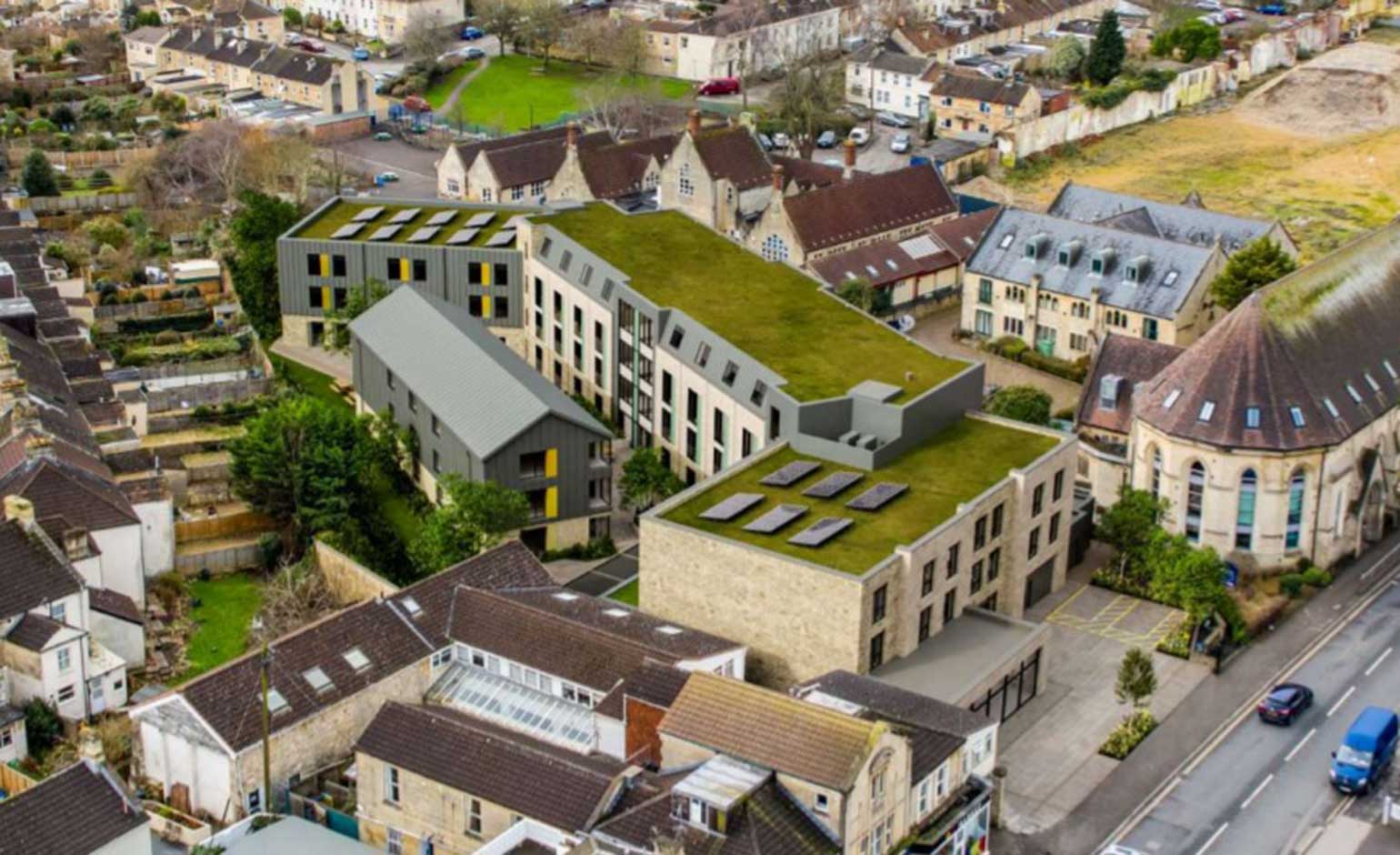“Win, win, win” plans to redevelop a 140-year-old Bath laundry with the city’s first 155 co-living flats have been rejected.

Plans for the Regency Laundry building | Image © Watkins Jones Group
Supporters praised developer Watkin Jones for scrapping student housing ambitions for the Regency Laundry site to propose flats they said would keep graduates and young professionals in Bath.
But critics said the estimated £950-a-month rent would not meet the need for affordable housing and the firm had failed to prove another commercial use was not viable.
Proposing approval of the scheme at Bath and North East Somerset Council’s planning meeting on 22nd September, Councillor Paul Crossley said: “This is something new and fresh. It will be a vibrant part of the new housing market.
“This is a win, win, win for everyone in Bath and North East Somerset.”
The plans proposed 155 en-suite studios with kitchenettes where residents would share facilities including a gym, communal kitchens and dining areas, reading room, TV lounge, laundry room, co-working lounge and landscaped gardens.
Westmoreland ward councillor Colin Blackburn said young local people want to stay in the city but are trapped by a lack of affordable options.
Watkins Jones said 20 per cent of the flats would be affordable and reserved for key workers, despite that not being a council policy requirement for co-living developments.
Objectors slammed the plans as “student housing in disguise” but councillors were told last month a tenancy agreement could require the flats to be occupied by professionals in full-time employment.
That would mean the flats would be liable for council tax, unlike student properties.
The St Peter’s Terrace site has been used for commercial laundry since 1879 but Regency Laundry, which employs 85 people, has outgrown it and is moving to larger, more modern premises in Corsham in Wiltshire. Both locations will be run in parallel until later this year.
Cllr Blackburn said the firm’s historic Bath HQ was wholly unsuitable for commercial activity and the plans would help cut in-commuting, adding: “This is a scheme we need. It gives 155 people the chance to live and work in the city.”
But Cllr Eleanor Jackson said the homes “won’t go anywhere near meeting the need for cheaper accommodation” for ordinary people on low wages.
Planning officers recommended refusal due to the excessive loss of industrial land in Bath.
Councillors said the application was premature because Watkin Jones had failed to market the property for a year before claiming there was no interest in a new commercial use.
The application was refused by five votes to three against, with one abstention.
Kenny Oke, development director of Watkin Jones, said in a statement after the meeting: “We are extremely disappointed with the decision taken today at the B&NES Council planning committee.
“We listened to the people of Bath and decided not to submit a policy compliant student accommodation scheme, instead providing a highly sustainable co-living scheme to create new homes aimed at younger people in the city and open up the ecological potential of the site by uncovering the Marl Brook.
“Rents are rising across the South West from a lack of rental housing supply. The conversion of an industrial unit to sustainable homes and co-working space open to the community would have helped to drive the city’s future economy, rather than more heavy traffic towards the city centre.
“We will now review our options for the site.”
Stephen Sumner, Local Democracy Reporter



